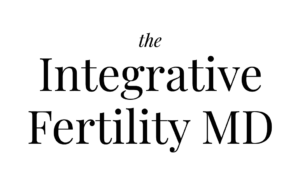You may associate pregnancy with the idea of “eating for two” and craving unusual foods as the baby grows. This may be a popular adage, but keep in mind the best source of health for you and your developing baby is a nutrient-rich diet. While it’s possible to obtain adequate amounts of vitamins and minerals from eating a variety of fruits, vegetables, and lean proteins, many people do not. Legumes are rich in protein, iron, folate, and calcium. Dark, leafy greens contain ample amounts of vitamin C, vitamin K, vitamin A, calcium, iron, folate, and potassium. Berries are high in antioxidants, while foods like salmon provide fatty acids for brain health. If these foods aren’t staples in our diet, you may consider supplementation.
Taking prenatal vitamins in preparation of your pregnancy is like an insurance plan. The eggs that are ovulated start on their development journey about three months prior to the cycle. Before you begin trying to conceive, you may want to speak with your doctor about the best prenatal supplement for you. Prenatal vitamins are recommended if you are not using birth control methods to prevent pregnancy, just in the event a pregnancy occurs you will want to ensure optimal nutrients are available for the fetus’s development.
What to Look for In a Prenatal Vitamin
A good prenatal should have various vitamins and minerals to support the health of the mother and the baby. While supplements vary in their ingredients, key items to look for include
- Vitamin A with the majority as beta carotene – extremely important for fetal vision development and immune function
- Vitamin B12 – important for maintaining the health of the nervous system
- Choline – supports the development of the baby’s brain and neural tube
- Iron – needed to make hemoglobin, a substance in red blood cells that transports oxygen throughout your body
- Methylfolate (instead of folic acid) – decreases the risk of preterm birth and congenital heart disease
- Calcium – necessary for skeletal formation and growth as well as muscle, heart, and nerve development
- Magnesium – enables the growth of strong bones and teeth in the baby and also supports the mother by reducing blood pressure levels and reducing the risk of premature contractions
- Selenium – supports thyroid hormone metabolism, DNA synthesis and acts as an antioxidant protecting cells from damage and infection
- Zinc – needed for cell division and tissue growth during baby’s development
- Iodine – maintains normal thyroid function for both mother and baby
- Biotin – required for the metabolism of glucose and amino acids and is essential in liver, skin, and nervous system healthy
Your doctor will be able to assist you in choosing the right dosage for you, as they will take into account your health, current diet, and any concerns that may warrant additional supplementation.
Many prenatal vitamins also contain Vitamin D and/or DHA. Sufficient levels of vitamin D help ensure proper calcium absorption. DHA, or Docosahexaenoic acid, is an omega-3 fatty acid essential for brain development during pregnancy. While these two ingredients are beneficial, most supplements do not contain adequate amounts. You will want to consult with your doctor to determine if you need an additional supplement.
What to Avoid in Your Prenatal Vitamins
A good rule of thumb when choosing supplements is to look for those as natural as possible. Avoid those that have food colorings or dyes which are unnecessary and petrochemicals, hydrocarbon derivatives, and coal tar. These may act as endocrine disrupting chemicals and affect fertility along with having adverse effects on the immune system.
Other ingredients in supplements you’ll want to avoid are hydrogenated oils like soybean, canola, and rapeseed. These are sometimes added to supplements to preserve shelf life and save costs. The hydrogenated oils are considered trans fats and have been shown to cause health concerns such as heart disease, stroke, diabetes, and possibly infertility.
Folic acid is added to some brands of prenatal supplements. You may be aware folate is important for prenatal health and the baby’s growth and development, but folic acid is the synthetic form of folate. The body has a more difficult time breaking down the folic acid (the synthetic version of the vitamin), and unmetabolized folic acid (UMFA) can build up in the blood and cause health concerns. It’s recommended instead to seek out supplements which provide methylfolate as a source of folate.
Your doctor will be able to recommend brands that are appropriate for you as they take into consideration your health history and nutritional needs. If you are local to the southern California area, I see patients in my offices in Los Angeles, Orange, and Riverside Counties where I offer comprehensive integrative fertility treatments. You can contact us for an appointment here.



